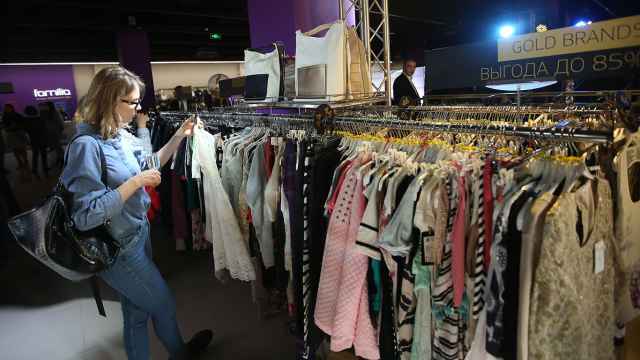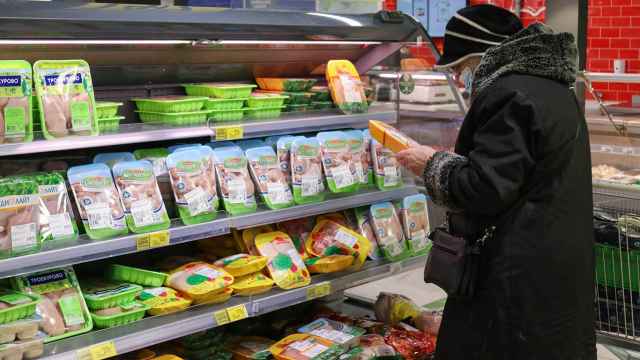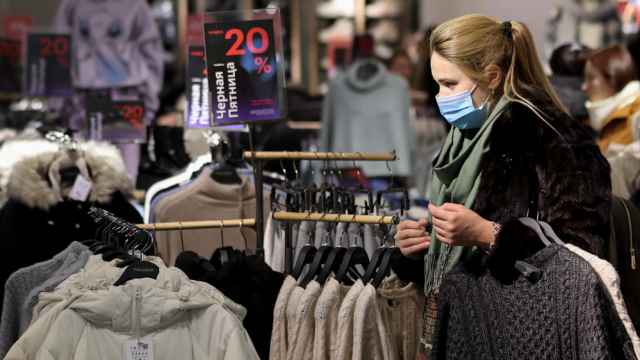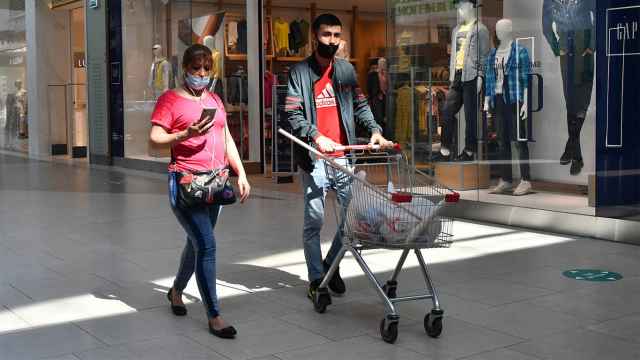Russians have started returning to shops, restaurants and hairdressers following the easing of lockdown restrictions, sending consumer spending back towards pre-coronavirus levels.
Aggregated payments data from Russia’s largest bank, Sberbank, shows spending over the last week was down around 8% compared with the same period in 2019 — a significant bounceback from levels recorded in April and May. Retail sales as recorded by Russia’s federal statistics agency Rosstat — a different, but comparable indicator — were down 23% in April.
In the second week of June, spending on goods was actually 4.4% higher than in 2019, Sberbank found, while outlays on services was still a third lower.
Russia has begun relaxing lockdown restrictions, with each region determining exactly which measures should stay in force, based on the spread of the virus and capacity of hospitals in their area. Shops in Moscow were allowed to open at the beginning of June, hairdressers got back to work a week later, and restaurants and cafes opened their summer terraces Tuesday.
Sberbank analysts said spending was now comparable to a quiet working day in 2019.
Despite the recovery, smaller businesses are still reeling from the effects of the pandemic. Small business activity is still down 29% compared with the same period in 2019, Sberbank said. In Moscow, the fall is even greater, at 38% — a sign that larger businesses are faring better as Russia emerges from the largest global economic shock in more than two decades.
Early figures show Russians are also adjusting where they spend following the coronavirus pandemic and hit to living standards, becoming more price conscious. The market share of budget label foods has begun to creep up, while sales of higher price items have slipped back. Surveys also show that consumers plan to spend less eating at restaurants and cafes, and more time cooking at home — a trend that could further hurt Russia’s small businesses and dent the pace of the recovery, should it materialize.
A Message from The Moscow Times:
Dear readers,
We are facing unprecedented challenges. Russia's Prosecutor General's Office has designated The Moscow Times as an "undesirable" organization, criminalizing our work and putting our staff at risk of prosecution. This follows our earlier unjust labeling as a "foreign agent."
These actions are direct attempts to silence independent journalism in Russia. The authorities claim our work "discredits the decisions of the Russian leadership." We see things differently: we strive to provide accurate, unbiased reporting on Russia.
We, the journalists of The Moscow Times, refuse to be silenced. But to continue our work, we need your help.
Your support, no matter how small, makes a world of difference. If you can, please support us monthly starting from just $2. It's quick to set up, and every contribution makes a significant impact.
By supporting The Moscow Times, you're defending open, independent journalism in the face of repression. Thank you for standing with us.
Remind me later.






